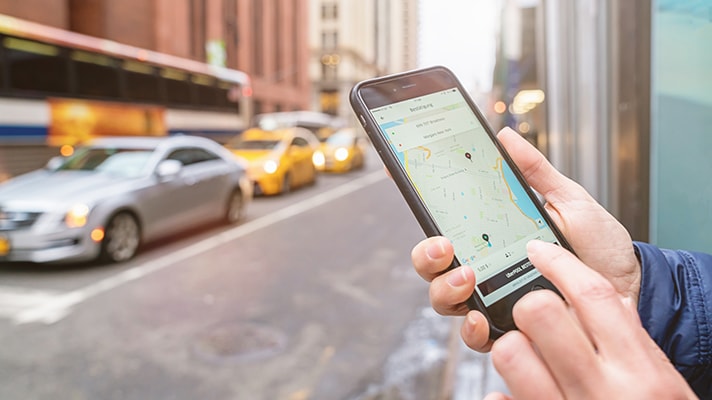Uber and Lyft Are Helping Patients Get to Their Appointments

Missed appointments cost healthcare providers $150 billion a year, with no-show rates as high as 30%, according to SCI Solutions, which provides IT services to the healthcare industry. With so many high-tech, digital reminders at our disposal, you may wonder how such an expensive and potentially dangerous problem exists.
A missed medical appointment could pose serious health risks for patients as it could mean the difference between catching a disease early on or too late. In addition, an inefficient scheduling process can wreak havoc and raise stress levels for both a health systems’ staff and patients.
Ride-hailing apps are helping patients get to the doctor’s office — and dipping into the lucrative healthcare market.
Uber recently announced a new program to get patients to doctor’s appointments, and this week, fellow ride-hailing app Lyft is partnering with an electronic health records company to give 2,500 hospitals a platform to request rides for its patients.
According to HealthcareITNews, Uber is delving more deeply into the provider ride business, announcing on Thursday a new app and text messaging service to get patients to and from doctor’s appointments and the hospital.
A dashboard app allows healthcare professionals to order rides for patients going to and from the care they need, according to Uber Health General Manager Chris Weber.
An Uber Health API allows for integration into existing healthcare products, for transportation to be scheduled for follow-up appointments while still at the healthcare facility. Multiple rides can be scheduled and managed at the same time from a single dashboard, Weber said.
Patients without a smartphone can still use Uber Health through text messaging or opt to receive a call with trip details to their mobile phone or landline instead, he said.
Over 100 healthcare organizations in the U.S, including hospitals, clinics, rehab centers, senior care facilities, home care centers, and physical therapy centers have started using Uber Health in a beta test of the new system.
Patients and providers may schedule a ride within a few hours or up to 30 days in advance.
To meet HIPAA standards, Uber has been working hard to implement numerous safeguards. It is working with Clearwater Compliance, a leading HIPAA compliance company, to conduct comprehensive risk and compliance assessments.
Providers taking part in the beta program include Adams Clinical, Blood Centers of the Pacific, Georgetown Home Care, LifeBridge Health, MedStar Health, Manhattan Women’s Health, NYU Perlmutter Cancer Center, Pro Staff Physical Therapy, ProActive Work Health Services, Project Open Hand, Renown Health, Thundermist Health Center and Yale New Haven Health.
Not to be outdone, according to USA Today, Lyft announced that it is expanding its partnerships with healthcare providers to provide the ride-hailing service to doctors and hospitals who want to arrange transportations for patients who can’t get to appointments.
Lyft is teaming with Allscripts, one of the nation’s leading electronic health records companies, to integrate its platform into the daily routines of 2,500 hospitals, 45,000 physician practices, and 180,000 physicians, reaching an estimated 7 million patients.
A desktop application allows medical facilities to call multiple cars at once and sends patients ride details via text messages. Healthcare providers cover the cost of the ride unless otherwise specified.
Although Lyft remains in the backseat when compared to its larger rival Uber, the company has spent the past two years working with hundreds of healthcare organizations through its business-focused LyftConcierge platform.
Providing Patients an Alternative
Instead of losing revenue due missed appointments, Uber and Lyft now provide a more efficient and cheaper option to taxis and shuttles, but notably not ambulances. Making sure patients make appointments is good for their well-being but it also saves hospitals money.
Letting your patients know of these two options, which they probably are already familiar with, can help you medical practice ensure your patients are able to attend their next appointment.

